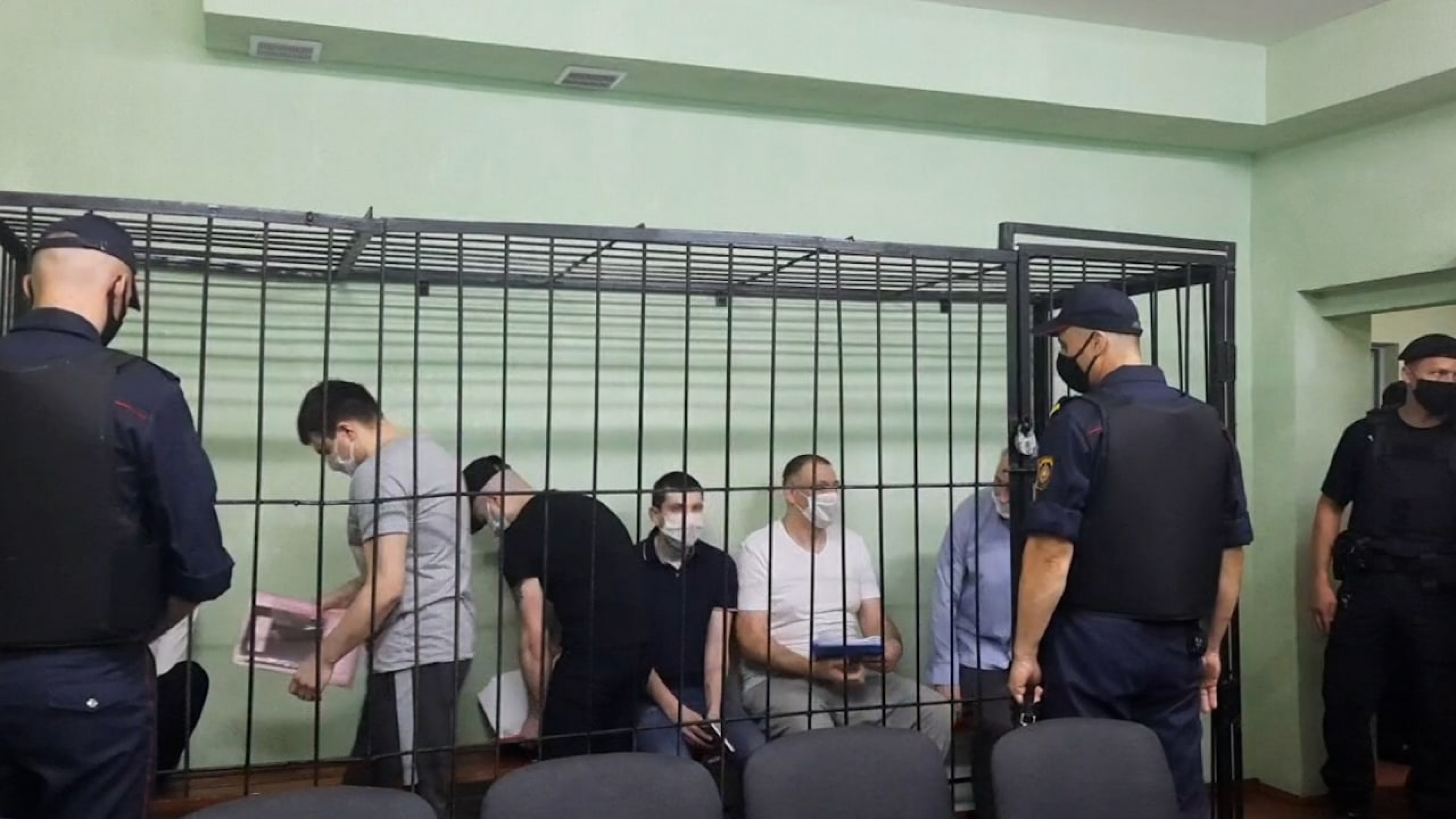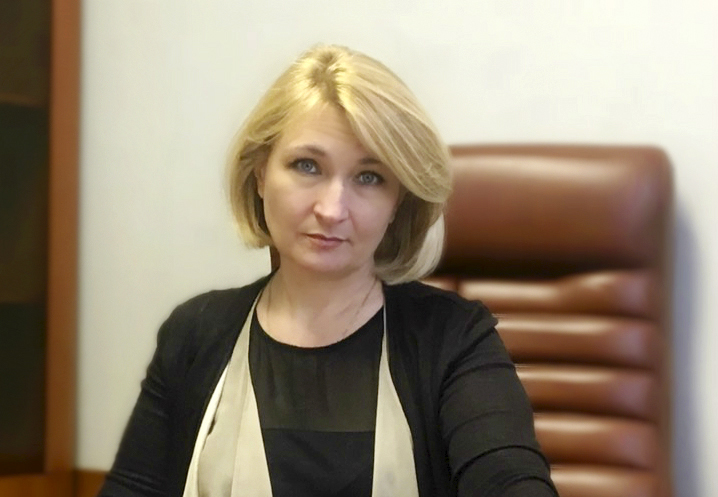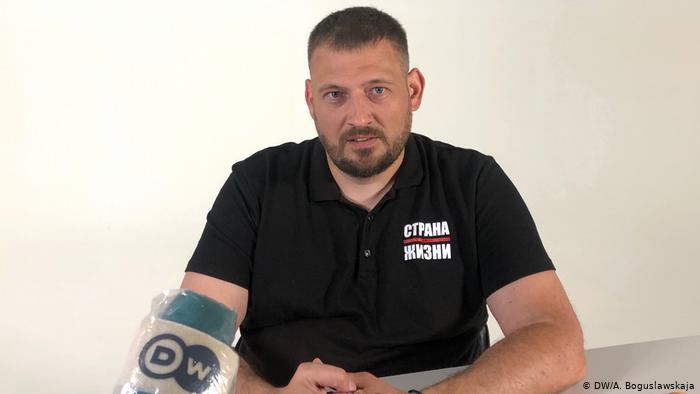Release Mr. Tsikhanouski immediately: UN Working Group on Arbitrary Detention rules in blogger's case
The deprivation of liberty of Siarhei Tsikhanouski is arbitrary and the Belarusian government should take urgent action to ensure his immediate release, the UN Working Group on Arbitrary Detention said in its decision adopted on September 6 and released on October 5.
The decision was taken in response to a complaint sent by Tsikhanouski’s lawyers describing the many instances of administrative persecution in the spring of 2020, his eventual arrest in late May and the criminal charges the blogger faced afterwards.
The Working Group finds that the Belarusian authorities violated several provisions of the International Covenant on Civil and Political Rights.
In particular, Tsikhanouski was not brought promptly before a judicial authority, in violation of article 9(3) of the Covenant. His pre-trial detention was warranted by a prosecutor, while the Working Group recalls that the prosecutorial body cannot be considered a judicial authority. Tsikhanouski was not availed of the opportunity to exercise his right to challenge the legality of his detention without delay. Furthermore, he was also denied access to his lawyer until some 35 hours after his arrest which further adversely impacted his right and ability to exercise his rights under article 9(4) of the Covenant.
The Working Group stresses that the authorities violated the blogger’s right to appear in person at all of his hearings to review the legality of his detention. The Working Group concludes that the authorities failed to establish the legal basis of Mr. Tsikhanouski’s detention in accordance with the provisions of the Covenant.
The Working Group therefore finds that his detention was arbitrary, as it is lacking a legal basis.
“It is quite clear to the Working Group that the basis for the arrest and subsequent detention of Mr. Tsikhanouski was in fact his exercise of the freedom of expression and freedom of assembly as well as the right to take part in public affairs of Belarus. There is no evidence whatsoever that any of his actions have been violent, that he incited to violence or that his actions indeed have led to violence by others,” the decision reads.
The Working Group wishes to specifically recall Human Rights Council Resolution 24/5 which “reminds States of their obligation to respect and fully protect the rights of all individuals to assemble peacefully and associate freely, online as well as offline, including in the context of elections, and including persons espousing minority or dissenting views or beliefs, human rights defenders, trade unionists and others.”

Six political prisoners are on trial under "Tsikhanouski's case"
The Working Group considers that the present case is a further example of criminal proceedings being used to prevent a high-level political opponent expressing his views and participating in public life, in violation of articles 19, 20 and 21 of the Universal Declaration of Human Rights and articles 19, 21 and 25 of the Covenant. The Working Group specifically notes the statements by the incumbent President (while visiting the Minsk Tractor Plant on May 29 and when addressing the government officials of the Minsk region on June 28) in this regard, which the Government has not contested.
In response to the government’s claim that during the May 29 picket in Hrodna Tsikhanouski violated the rules of collecting voters’ signatures, the Working Group emphasized the practical impossibility of satisfying the requirements of the law which, while allowing gathering of signatures for presidential candidates, prohibits any political campaigning.
“To draw a distinction between the two in the circumstances of a campaign for a political office is nearly impossible as the public is very likely to have questions about the political views of the candidate and without giving some expression of such views, the signature gathering process is unlikely to have any success,” it said.
Equally, the Working Group also wishes to emphasize that “the power to detain persons during public health emergencies must not be used to silence the work of human rights defenders, journalists, members of the political opposition”.
“Given its finding that the deprivation of liberty of Mr. Tsikhanouski is arbitrary under category II, the Working Group wishes to emphasize that no trial of Mr. Tsikhanouski should have taken place,” the UN body concludes.
However, the trial proceedings are on-going, and Mr. Tsikhanouski has been denied his fair trial rights and that his detention is therefore arbitrary. In particular, he was reportedly denied access to his lawyer initially; his presumption of innocence was not preserved and his trial is being conducted behind closed doors.
The Working Group notes that all these allegations were detailed to the Government. However, the Government has chosen not to address any of these allegations in its response to the Working Group.
The Working Group finds that Mr. Tsikhanouski was denied access to legal assistance following his arrest, in violation of his right to adequate time and facilities for the preparation of his defence and to communicate with counsel under article 14(3)(b) of the Covenant.
“The right to communicate with counsel as encapsulated in article 14(3)(b) of the Covenant entails the requirement that the counsel should be able to meet their clients in private and to communicate with the accused in conditions that fully respect the confidentiality of their communications. This was denied to Mr. Tsikhanouski, and the Working Group therefore finds a breach of article 14(3)(b) of the Covenant as well as of Rule 61(1) of the United Nations Standard Minimum Rules for the Treatment of Prisoners (the Nelson Mandela Rules) and Principle 18(3) of the Body of Principles for the Protection of All Persons under Any Form of Detention or Imprisonment,” the Working Group said.
The Government has not denied that various films were broadcasted on national television on 27 and 28 April 2021, right before the trial of Mr. Tsikhanouski was due to commence, included a video of a private consultation between Mr. Tsikhanouski and his lawyer.
The Working Group considers that the broadcasting on national television on 27 and 28 April 2021, shortly before the trial of Mr. Tsikhanouski was due to commence, portraying him as a criminal, have breached the country’s obligation to respect the right to the presumption of innocence under article 11(1) of the Universal Declaration of Human Rights and article 14(2) of the Covenant.
The Working Group is mindful that the Government has provided no account as to how the entirely peaceful actions of Mr. Tsikhanouski amounted to a crime and in particular observes that all these previous arrests concern events similar to those preceding the arrest at the centre of the present case - an arrest in relation to public assembly, a rally, in connection with the then upcoming presidential elections and campaign of an opposition candidate in such elections.
“In the view of the Working Group, there is a clear pattern of attitude on behalf of the Belarusian authorities in relation to Mr. Tsikhanouski,” it said.
The Working Group notes that the numerous arrests of Mr. Tsikhanouski, including the one of 29 May 2020, have been documented as arrests carried out in the context of presidential elections of an opposition candidate or one supporting an opposition candidate by the Special Rapporteur on the situation of human rights in Belarus in 2020 and 2021. This also correlates to the observations made in the 2021 report of the United Nations High Commissioner for Human Rights on the situation of human rights in Belarus in the context of the 2020 presidential election.
Noting all the above and especially its findings, the Working Group finds that the arrest and detention of Mr. Tsikhanouski constitute a violation of articles 2 and 7 of the Universal Declaration of Human Rights and articles 2(1) and 26 of the Covenant, on the ground of discrimination based on his political opinion. His detention is therefore arbitrary under category V.
The Working Group notes the uncontested allegations that Mr. Tsikhanouski has not been allowed to meet with anyone else but his lawyer since his arrest and throughout his detention and that he was subjected to a punishment of 14 days in a punishment cell.

Ministry of Justice suspends Tsikhanouski’s key lawyer Natallia Matskevich
The Working Group notes the absence of a response from the Government in relation to allegations made by the source concerning the denial to Mr. Tsikhanouski of contact with his family. The Working Group therefore finds a violation of principle 19 of the Body of Principles.
The Working Group also notes the absence of a Government reply to the allegations concerning the treatment of Mr. Tsikhanouski in detention and in particular his placement in a punishment cell for 14 days due to his alleged violations of the internal rules of the facility.
The Working Group considers that the treatment that Mr. Tsikhanouski was subjected to appears to be retaliatory for his political activism, a reprisal and is incompatible with the obligations which Belarus has undertaken under article 10 of the Covenant.
The Working Group has held that according to rule 45 of the Mandela Rules, the imposition of solitary confinement must be accompanied by certain safeguards. Solitary confinement must only be used in exceptional cases as a last resort, for as short a time as possible, subject to independent review, and authorised by a competent authority. These conditions do not appear to have been observed in the present case.
The Working Group requests the Government of Belarus to take the steps necessary to remedy the situation of Mr. Tsikhanouski without delay and bring it into conformity with the relevant international norms, including those set out in the Universal Declaration of Human Rights and the International Covenant on Civil and Political Rights.
The Working Group considers that, taking into account all the circumstances of the case, the appropriate remedy would be to release Mr. Tsikhanouski immediately and accord him an enforceable right to compensation and other reparations, in accordance with international law. In the current context of the global coronavirus disease (COVID-19) pandemic and the threat that it poses in places of detention, the Working Group calls upon the Government to take urgent action to ensure the immediate release of Mr. Tsikhanouski.
The Working Group urges the Government to ensure a full and independent investigation of the circumstances surrounding the arbitrary deprivation of liberty of Mr. Tsikhanouski and to take appropriate measures against those responsible for the violation of his rights.
In accordance with paragraph 33 (a) of its methods of work, the Working Group refers the present case to (i) the Special Rapporteur on the promotion and protection of the right to freedom of opinion and expression; (ii) the Special Rapporteur on the rights to freedom of peaceful assembly and of association; and (iii) the Special Rapporteur on the situation of human rights in Belarus, for appropriate action.
What is the mandate of the Working Group on Arbitrary Detention
The Working Group on Arbitrary Detention is a legal mechanism established by the UN Human Rights Council. The group consists of five experts selected on a competitive basis from among recognized legal professionals possessing skills to deal with individual complaints. The group's decisions called Views are taken at a meeting of the Working Group following an adversarial procedure, in which the state is given the opportunity to challenge the applicant's allegations, and the state's response is taken into account when making the decision. In this case, the state participated in such a procedure, thereby showing that it recognizes the competence of the Working Group. On May 14, 2021, the Working Group sent a message to the Government of Belarus regarding Siarhei Tsikhanouski. The government of Belarus replied to the message on June 24, 2021.
In its Views, the Working Group stressed that, in accordance with the principles adopted in its jurisprudence, if a source has provided sufficient evidence of a violation of international law committed through unlawful detention, the burden of proof lies with the State if it intends to refute these allegations.
The Working Group defines arbitrary detention as any form of arbitrary deprivation of liberty, including pre-trial detention and imprisonment by a court ruling.


















